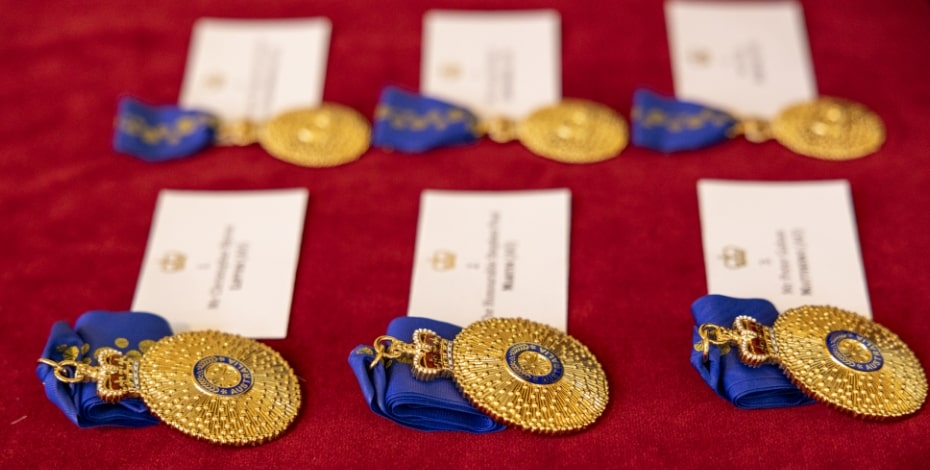
In service to the community

Four APA physiotherapists were awarded Australia Day Honours in January 2023 for services to community health.
Drawing a line under a substantial career
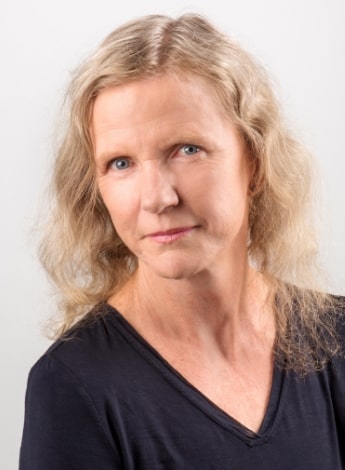
Emeritus Professor Jill Cook's research has significantly impacted management of tendinopathies.
It’s not often that a researcher can say that their work has had a significant impact on the way an injury is managed.
However, research conducted by La Trobe University Emeritus Professor Jill Cook APAM MACP since completing her PhD in 2000 has done exactly that for tendinopathies of the lower limbs, one of the most common sporting injuries.
This year she was awarded a Member of the Order of Australia (AM) for her services to physiotherapy and sports medicine.
‘I think it has put a line under my career.
‘I have had a substantial clinical and research career and I feel that this is the line underneath it all to say that what I have achieved is sufficient,’ Jill says.
Jill started her career as a sports and exercise physiotherapist, working and travelling with elite Australian sporting teams including basketball, netball, hockey and athletics for more than 20 years.
The most prominent was the Opals, the Australian women’s national basketball team.
She also toured with the junior national basketball team.
Her frustration with the lack of success in managing tendinopathy led her to start researching the condition.
‘We weren’t getting anybody better; we had no idea what we were dealing with; we had no idea about anything,’ Jill says.
‘When we started our research, we knew very little about tendinopathy.
‘We initially looked at the pathology and at whether the imaging correlates with the pathology and the symptoms—does imaging help us to make clinical decisions?
‘As it turns out, it doesn’t.
‘Since then we have been looking at how best to manage the condition.
‘Our work underpins much of the change that has taken place in the management of tendinopathy over the past 20 years, not just in Australia but worldwide.’
Recognition of this achievement, however, should extend beyond her contribution, Jill says.
‘These honours are also an acknowledgement of the people who’ve supported me and their contribution.
‘Research is not something you do by yourself; it’s something you do as a team.
‘I hope they all feel part of this as well—it’s nice that they’ve been part of a team that has been recognised at a national level.’
Jill retired in 2021 but retains a position as emeritus professor at La Trobe University, where she is tidying up the loose ends of her academic career.
‘I have four or five PhDs trundling along and I’m hoping to finalise that in the next year or two.
‘I’m also still involved in research and writing some papers and I do a bit of clinical work.
‘I’m trying to find that balance between being a retired person and having an interest still—a finger in the pie,’ she says.
‘I’m travelling a bit so I’m going to some conferences overseas next year and I still enjoy that, talking to people overseas.
‘My retirement trip is in September—I’ve put myself on the world’s most expensive boat to cruise around the Galápagos.
‘You need something to underline the end of your career.’
Putting the pelvic floor first
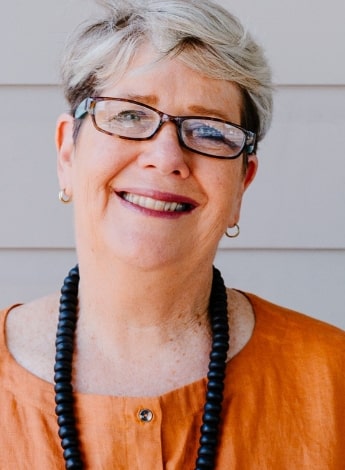
Sue Croft has been a pelvic health physiotherapist for 33 years.
When physiotherapist Sue Croft APAM found out that she was to be awarded a Medal of the Order of Australia (OAM) on Australia Day for her services to community health as a physiotherapist, there was one person she knew she had to tell—her mother.
‘She’s 97; she needed to know that this was happening.
‘For as long as I can remember, my mother has rung or texted me in June when the Queen’s Birthday Honours come out and on Australia Day to say, “Well, we’re both not on the list. We can relax. We haven’t got it this year” and it’s just been such a thing for her.
‘Bless her heart; she was tickled pink,’ says Sue, a pelvic health physiotherapist based in Brisbane.
The nomination was particularly welcome after the difficulties of running a busy practice during three years of pandemic lockdowns.
‘It means a lot to me.
‘It has been very reassuring to know that I’ve done good things for a lot of people over the course of my career and it’s nice to be recognised for that,’ Sue says.
A physiotherapist since 1977, Sue was first introduced to women’s pelvic health when, as a new mother herself, she started teaching antenatal health classes at the Mater Mothers’ Hospital in Brisbane.
After having her third child, she was offered a women’s health role at the Queen Elizabeth II Jubilee Hospital and that’s when she took a more intensive interest in pelvic health.
In the 33 years since, Sue has become a clinical leader in the area of women’s pelvic health and her own experience with pelvic health issues due to birthing large babies has given her a personal insight on which she draws in her practice.
‘Pelvic health is such an all-encompassing area.
‘As a physio, you get to deeply understand what’s going on for women, partly because we have such close connections with them.
‘We are asking them to tell us about some very personal things.
‘What I love is being able to connect with a person so that they don’t feel that it’s dangerous to expose information to us.
‘They feel confident; they feel safe,’ says Sue.
Sue has been closely involved with the Continence Foundation of Australia for many years and has written two books for patients about pelvic health, one on pelvic floor recovery after surgery and a second covering essential pelvic health information including antenatal care and postpartum recovery.
She updates them regularly to include the latest evidence.
‘I was tired of writing out instructions for every patient saying that these surgeries are prone to failing.
‘The statistics are terrible.
‘You have up to a 30 per cent failure rate with gynaecological repair surgery if you have intact muscles.
‘If you have a levator avulsion injury, that failure rate can go up to 80 per cent.
‘We’re dealing with a cohort of women who lift children and grandchildren, do the washing, bend over and garden and love to exercise.
‘These activities can increase their downward intra-abdominal pressure.
‘As a result, the surgery is more likely to fail,’ she says.
The book gives them strategies to enhance their recovery.
In addition to her books, Sue raises awareness of pelvic health and physiotherapy’s role in it in a variety of ways—she writes regular blog posts for her website and for the general public and she is active on social media.
Sue hopes to use the recognition afforded by receiving an Order of Australia Medal to talk to more people about the value of pelvic health physiotherapy for adults and children.
‘I see it as another platform.
‘It might reach a group of people who haven’t heard that you don’t have to live with pelvic floor issues.
‘You can get help and the help is comprehensive,’ she says.
Supporting kids with disabilities and their families
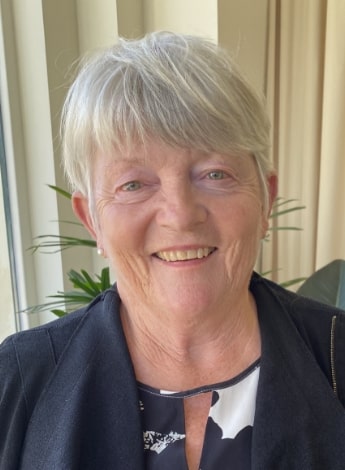
Sarah Foley set up the Kids Plus Foundation in Geelong to help provide therapy services to children with disabilities.
In January, Geelong physiotherapist Sarah Foley APAM was the recipient of a Medal of the Order of Australia (OAM), recognising her services to community health and physiotherapy and, in particular, her role in setting up physiotherapy services for children with disabilities.
As a paediatric physiotherapist working with children with disabilities in the years before the National Disability Insurance Scheme was introduced, Sarah found that many families who had a child with lifelong disabilities due to cerebral palsy, stroke or brain injury found it difficult to afford regular therapy sessions for their child.
And because of the scarcity of available services, particularly for very young children, waiting lists for therapy were long.
‘It was just how it was.
‘If you had a baby diagnosed with cerebral palsy at six months, you then went on a waiting list for a place in early intervention and that could take a year,’ Sarah said.
After graduating as a physiotherapist in 1976, Sarah worked at the Royal Children’s Hospital in Melbourne as well as at the Hospital for Sick Children in London, England (now known as Great Ormond Street Hospital for Children) before settling in Geelong.
With some colleagues, she set up multidisciplinary private practice Children’s Therapy Services, which offered physiotherapy and other services to local families, allowing children to get the therapy they needed much earlier.
But they soon ran into a problem—many families could not afford to pay for regular therapy sessions.
‘It was a private practice and for families who have children with lifetime disability, the economics of a private practice model are difficult,’ Sarah says.
Her multidisciplinary practice would juggle its case load to make it easier for struggling families to attend more often, but it was clear that there was a gap that needed to be filled.
‘We wanted to somehow provide free access to therapy.
‘Our solution was to set up a not-for-profit organisation, which, in its early days, relied entirely on philanthropic funding.
‘The Geelong community is very generous about supporting good causes.
‘I’m not sure whether this would have been easy to set up in a big metro centre,’ Sarah says.
Established in 2003, the Kids Plus Foundation is dedicated to providing children with long-term disabilities with the regular therapy they need at no cost.
Its growth has been substantially underpinned by being a trial site for the National Disability Insurance Scheme.
‘It gave us grey hair, being a trial site, but in fact, it was fantastic.
‘Funding was attached to the child and the family—it wasn’t attached to the service—so families could actually choose to come to whatever service they wanted.
‘We just became busier and busier as a service provider from childhood on,’ Sarah says.
Sarah stepped back from day-to-day clinical work in 2020, but she continues as a consultant—mentoring, teaching and helping to develop research partnerships.
She’s proud of all she has achieved but is quick to note that it has always been a team effort.
‘My work is the reason I got it, but that work is due to a massive team of people with whom I’ve been involved over many years.
‘So it’s really an award for the team and for what grew out of some ideas, not for me as an individual,’ Sarah says.
Driving change through leadership
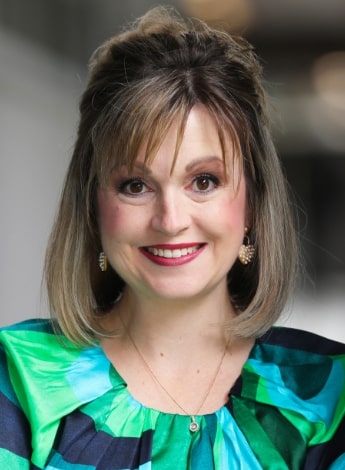
Katherine Maka has had a long involvement with the APA, as a member of the NAC and as NSW Branch President.
Physiotherapist Katherine Maka APAM is a driver of change.
At Sydney’s Westmead Hospital, she has been a key player in implementing improvements and leading teams, including the COVID-19 response team set up in the early days of the pandemic.
In January, she was awarded the Medal of the Order of Australia (OAM) for her services to community health.
For most of her 20-plus-year career, bar a single year working in private practice early on, Katherine has worked in Westmead Hospital’s physiotherapy department, for many years as a team leader and then as deputy manager.
Since 2020, she has been head of the physiotherapy department.
Katherine has also had a long involvement with the APA, including stints on the National Advisory Council in 2017 and in the Emergency Department—now Advanced Practice (including Emergency Department)—national group, which she played a role in establishing, and as the NSW Branch president.
These roles gave Katherine the leadership skills she needed, encouraging her to pursue further qualifications in leadership and management. It’s all put to work in her current role.
‘You take those opportunities and listen, learn and watch how the committee works.
‘I give back to my department because someone’s invested in me and I want to impart that to others,’ she says.
In 2018, Katherine finished a postgraduate qualification in clinical redesign at the Agency for Clinical Innovation and the University of Tasmania and then took on a role in innovation and redesign in the Western Sydney Local Health District, where she worked on several projects across the district.
The work she did there led her to complete a Master of Business Administration in Innovation and Leadership in 2021.
During the COVID pandemic, Katherine also took on the responsibility of leading the COVID response team and was deputy controller of the emergency response centre for the Western Sydney Local Health District.
Katherine is interested in improving the quality and delivery of physiotherapy services at Westmead.
She’s instigated a process that allows staff members to pitch quality improvement projects.
‘I’ve got seven or eight projects running in the department and we’ve never had that before.
‘It’s an opportunity for learning and for people from different teams to come together—part of the purpose of this was to bring knowledge and skills from anywhere into a team to lead the change,’ Katherine says.
Katherine says she was delighted to be awarded the Medal of the Order of Australia in January.
‘I’m honoured and I’m very grateful to all the people who have supported me, including professional colleagues and my family.’
© Copyright 2024 by Australian Physiotherapy Association. All rights reserved.





